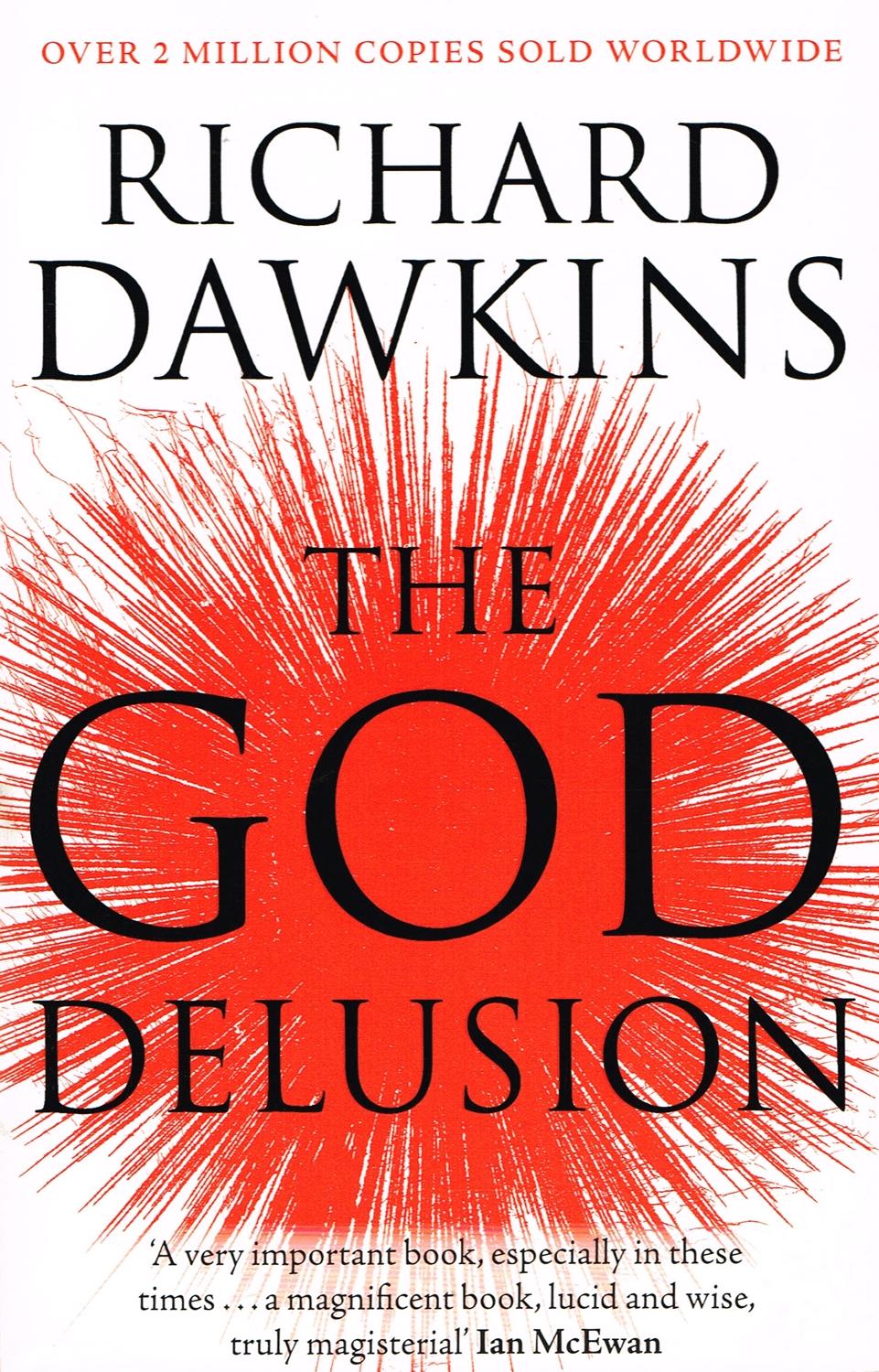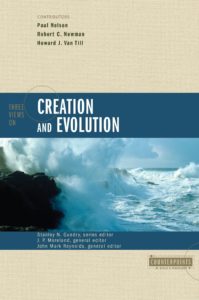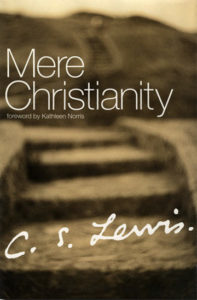
Synopsis
Overall Rating
Final Thoughts
Year Published
2006
Authors
Topics
Synopsis
Final Thoughts
Overall Rating
This book is much different from the ones I normally read. Instead of being positively related to faith, it is Dawkins’ attempt to present a reasonable case for atheism. He presents it as a book that will show those who do not know they can be atheists that it is the only logical worldview, and hopes that it will even turn some Christians (or other religions, but he focuses mostly on Christianity as it is the most widespread) into atheists through his arguments against God and for evolution.
Because of the length of this book, and the many topics that Dawkins plans to cover throughout it, I’m going to do my brief in pieces. Normally, I would wait until the end of the book and write about the whole thing, but I fear that I will forget many of the points Dawkins makes if I do it this way. For this reason, I would like to apologize in advance if the writing of this seems disjointed. I will be writing out thoughts based on things he’s saying as they come up. Once I finish (listening to) the book, I will write a summary- which will be marked as such- about the books as a whole. But, until then, enjoy my moderately fleshed out thoughts on points he’s making as they occur.
The first point that Dawkins makes that seem rather outrageous to me is the idea that atheism is the only reasonable worldview for an educated people. He alludes to, coming very close to outright stating, the idea that believing in God is reserved for the unintelligent, or, at the very least, uneducated. To make any such claim is unfounded, as many well-educated people throughout history have upheld religious convictions. Likewise, it is very possible that many uneducated people have been atheists. One’s education, or intelligence, have no bearing on whether or not one believes in God. While Dawkins would argue this point and say that further education would prove to someone that there is no God, that is simply not the case. There is nothing in any form of education that proves there is no God. Furthermore, I would argue, being able to think in abstract ways (such as that of religion) are a form of higher intelligence, as abstract thought develops as one grows. But that’s a different matter that I do not wish to press too far.
Another false point against God that Dawkins asserts is that we believe in a small God. He says that believing in a God that created the universe rather than believing that science and randomness created the universe makes our God small. The jump there boggles my mind. How could one rationally think that a god that created the universe, still interacts with people, and is omniscient could be small? That seems to be the furthest thing from the truth from a purely rational standpoint, let alone from a lens of faith.
One thing Dawkins states that I do somewhat agree with is the idea that religion can be given too much respect. Dawkins goes further than I would, but I do agree with him when he states that being unable to discuss one’s religion or have a civil argument about its validity without seen as disrespectful is wrong. While this may not be true for most Christians, I have no problem with someone challenging the things I believe (I am reading a book dedicated to disproving God after all) and gladly discuss these things with people, even those who adamantly disagree. Dawkins points to the idea that you can disagree and argue about politics, but as soon as you get to religion, you should just drop it and let it go. I agree that that should not be the case. I also agree that one person’s religion should not be allowed to infringe on another’s rights of feeling safe and comfortable within their society (for instance- hate speech/actions from political groups should not be deemed appropriate under religious freedom as they do nothing more than take away from someone else’s security in their own society). I do, however, believe that all people deserve more respect than Dawkins does. He argues that treating religion with respect goes further than any person deserves. I would counter that everyone deserves as much respect as possible, and nothing they believe in should be treated disrespectfully. I have no problem arguing, but to use some of the terms Dawkins uses to describe religious people and their beliefs is disrespectful not only to their beliefs but to them as a person, and I firmly believe that’s wrong.
Dawkins spends a bit of time trying to prove why there can’t be a God. Ultimately, I find most of his arguments rather unconvincing. Like most who oppose a creationist view (I include guided evolution within this label), they try to argue against reasons that there must be a creator. “Similarities between species show a common evolution, not a common creator,’s” they say regularly. And yet, that’s not the case with cars. Or computers. Or anything else in reality. Sure, these items have “evolved” over time, but all by a creator, guiding them, and creating them into something. They share similar characteristics because the creator saw the benefits of it and used it again, adapting it slightly. But it would never have come into place without a creator in the first place. It seems to me that Dawkins tries to replace God with Natural Selection, going so far as to personify it and having it actually do things, rather than just happen. That doesn’t help his argument that things happened on their own. Not only that, but until you find some way for things to come about without a creator, you need the creator. There is no evidence for where the matter before the big bang came from. It cannot have existed forever, that’s just impossible. Nor can you gain life from nonlife. That’s accepted as fact within science, except for when it comes to evolution. Why the contradictions?
Dawkins also argues that as you go back to find the initial cause, you must find the most simple beginning, and God cannot be a simple beginning. But that just doesn’t make sense. You can’t have complex things from simple things unless they are put together. One simple thing on its own cannot make a complex thing. One card cannot make a house of cards. You must combine multiple simple things in order to create a complex thing, and, therefore, the original must be the most complex of all.
However, the most incoherent thing about his argument cannot be overlooked. In discussing how natural selection works, Dawkins claims that all things that are continued in the world are beneficial in some way. He then goes on to document a few of those things. He makes a mistake, though, when he tries to say that whilst we may not know the details of how it’s beneficial, it doesn’t mean that it’s not. For instance, he talks about a bird that rolls in dirt. He claims that whilst we may not know how this action is beneficial, the simple fact that it exists proves that it is. That, my friends, is circular reasoning. He also tries to explain how religion can be useful (trying to show why it has existed for so long and why natural selection didn’t eliminate it long ago) but ultimately comes to no definitive conclusion as to why, and claims that it isn’t. (In this discussion he relates religion to the common cold, and talks about how religion is possibly just baser instincts being used in an improper way). But wait, Dawkins. Just because we don’t know why it’s useful doesn’t mean it isn’t. Is that not what you said about the bird? I feel like you’re sending mixed messages about this argument.
Dawkins brags that his talks and books have brought many people out of the lie of religion. And yet, his writing itself begs the idea of religion. Not only does the above problem within his writing exist, but he ends the book by discussing how we live in this middle part of the world. The are things bigger and smaller than those that we can understand. Somehow (and I’m unable to follow the logic) he decides that because of this we must not limit ourselves to understanding and that’s what atheism is. To the contrary, atheism is the definition of limiting your understanding. Being unable to contemplate or entertain the idea of something higher (ie- God) is limiting. How can you argue that there’s so much we are unable to understand, but then earlier explain that God can’t exist because it doesn’t make sense. Dawkins, I’m sorry, but you’re the one who doesn’t make sense.
Dawkins does make some good points, though. Religion does cause people to do stupid and dangerous things. It can cause people to hate. But so can money. And food. And relatives. Are we supposed to stop believing in them as well because it’s not perfect? That just wouldn’t work. You can’t take only the bad out of something and use that as an excuse to refuse it. You must also look at the good and see how, when done properly, Christianity can (and has done) more good than any other institution there has ever been. That cannot be ignored.



